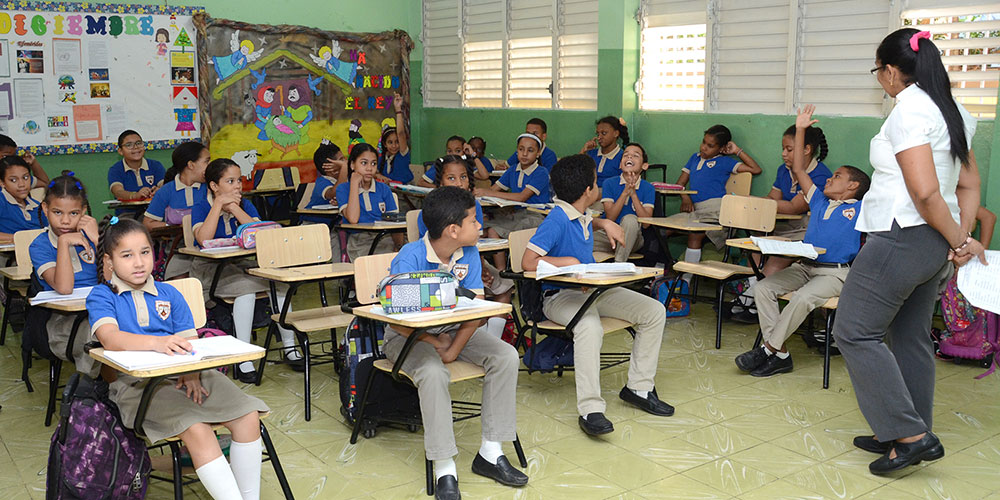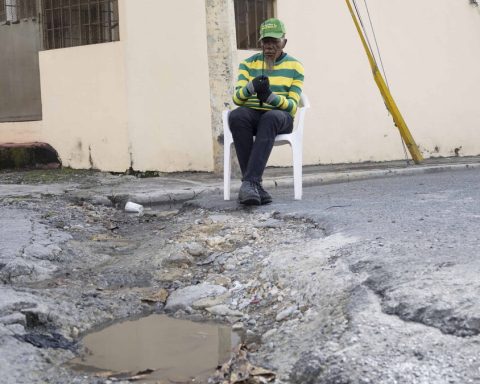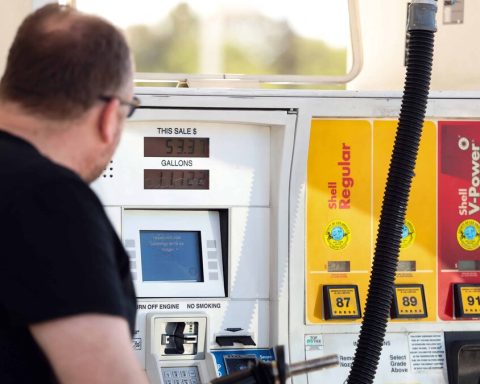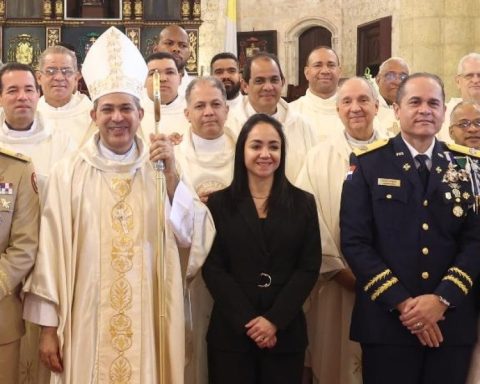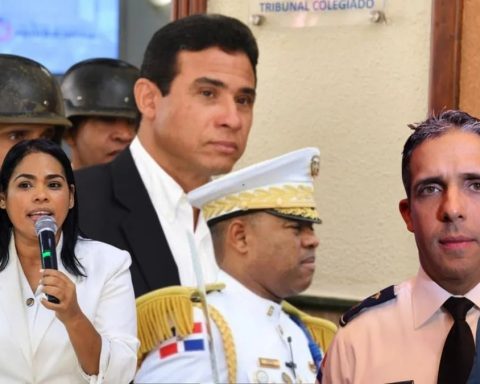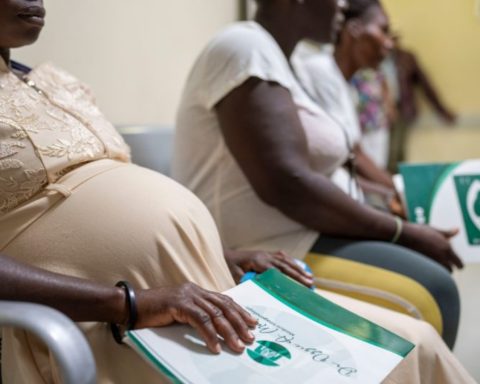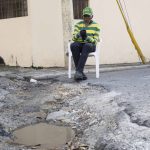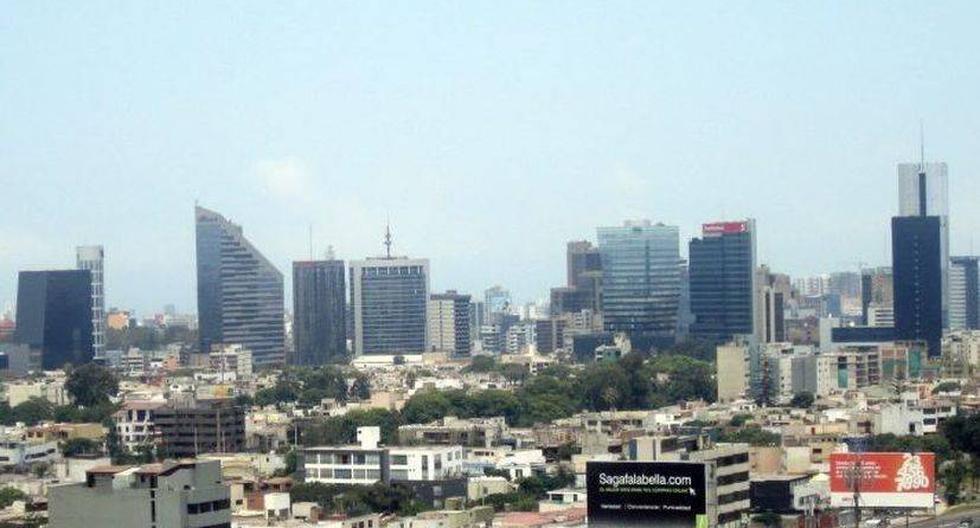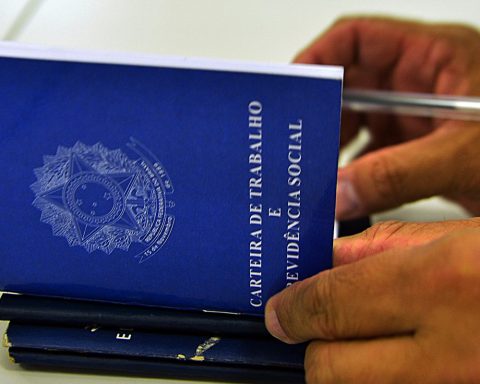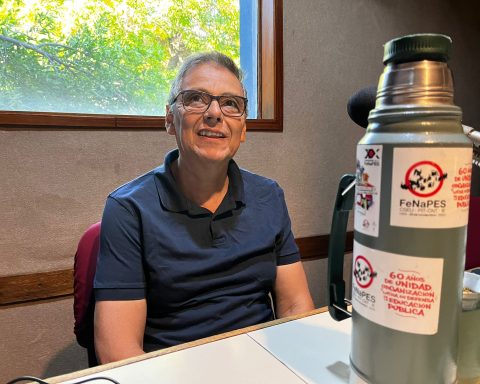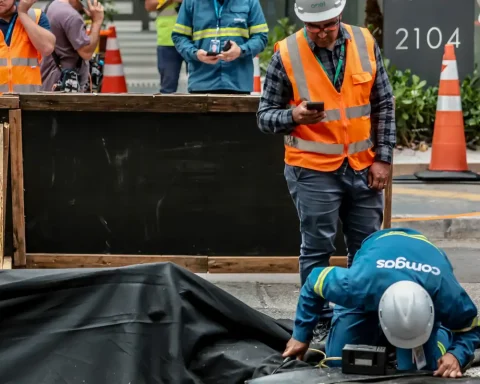Nine years after the pact, the regulation to evaluate has not been created nor has the monitoring and evaluation committee met
Almost nine years have passed since the signing of the pact for the reform and improvement of educational quality in the Dominican Republic. But the regulation for monitoring, evaluation and social oversight has not yet been prepared. This regulation would be the basis for monitoring the progress or compliance actions of the agreement assumed by all sectors of Dominican society.
The agreements and commitments assumed in the educational pact are of a different nature. Some involve concrete public policies and legislative reforms. Others require dedicating greater public and private efforts. There are others that promote paradigm shifts in our daily personal and collective actions. Etos is to achieve an education that allows all Dominicans to develop their potential to the fullest.
The monitoring and evaluation committee of the agreement signed by the former President of the Republic, Danilo Medina, the Vice President Margarita Cedeño, the First Lady of the Republic, the leaders of the political parties, the actors of the educational system and special guests has never met. .
“Prepare a regulation that governs the functions of monitoring, evaluation and social oversight of the process of implementation of the Pact. The Technical Support Committee will present, within a period of no more than three months from the signing of the Agreement, a proposal for Internal Regulations to be approved in a working session of the delegates of the Agreement”, says point 9.10 of the commitment that it was signed on April 1, 2014.
In other words, it has not been established on what basis the progress, lag or breach of the commitments assumed until 2030 is measured.
what the Economic and Social Council says
In response to concerns from elCaribe, regarding the reasons why this important body has not worked, Rafael Toribio, president of the Economic and Social Council (CES) reported that “the Monitoring and Evaluation Committee is a fundamental part of the governance of the Educational Pact but it has not worked yet because it has not been established who is responsible for its call.
He recalled that on November 29, 2018, the evaluation report of the monitoring mechanisms for the pact was presented and at that time, the monitoring commission, installed in November 2015, “obtained a low rating since it never came to specify its operation.” .
What else has happened?
The first plenary assembly of the actors and entities that signed the pact was held last year after a call made by the President of the Republic, Luis Abinader.
After that, another five meetings were held and in one of those, emphasis was placed on the weakness of monitoring due to the lack of a functional committee.
“It has never worked, it does not exist… It exists, it has never worked, it has never met and it has no regulations…. Do you know why it hasn’t worked? Because it has not had a coordinator, because the CES is not part of that committee… That committee is essential in governance”, was the exchange of words between Iraima Capriles, until recently executive director of the CES and the vice minister of planning and development educator, Rolando Reyes, in one of the plenary debates.
In that meeting, the president of the CES asked to “reorient, readjust, this educational pact to the new realities and in accordance with the diagnoses that have been made.”
work in a vacuum
Vice Minister Reyes acknowledged that from the point of view of governance, work is being done in a vacuum and that “has been a weakness of the pact” signed, precisely, to improve the quality of Dominican education.
“From the point of view of advancing in the commitments of the pact, the fact that no progress has been made in the means of governance does not mean that no progress has been made in the scope of the commitments,” Vice Minister Reyes told elCaribe, noting that the 74% of the resources budgeted by the Ministry of Education in the Annual Operative Plan (POA) are aligned with the educational pact.
Despite the fact that the CES and the Minerd affirmed that the monitoring Committee never operated, the director of Educa, Darwin Caraballo, refers that the then vice minister Magdalena Lizardo was responsible for the monitoring and follow-up reports, based on which the committee of oversight coordinated by Educa, acted and validated from 2013 to 2020.
“That comment is valid as long as it is limited to this government period, but from the previous one all the joint coordination committees that Iraima chaired did work,” said Caraballo.
Oversight reports
Despite this lack of regulations, the oversight committee, made up of civil society actors, has made three reports regarding the progress of the pact, but this has been without the financial support of the Ministry of Education and with many obstacles to access to the data.
“It is important to point out that, due to budgetary restrictions, the Oversight Committee did not widely disseminate these recommendations, nor did it continuously monitor compliance with them. What should be considered when evaluating the level of progress of the implemented actions”, says the 2018 oversight report.
The limited functionality of the oversight commission is corroborated by Mari Cantizano, PhD in Educational Sciences, and a person linked to teacher training.
“Not even the oversights have worked. A Chronicle of a Death Foretold. When in some spaces they requested information, they were denied and many responsible, serious, committed people decided to withdraw”, recalls the professional who without much hesitation describes the signing of the educational pact as a markedly politicized strategy.
In his opinion, it was to be expected that the system was not contributing to the oversight being carried out effectively, since there are many precarious conditions in the schools: lack of drinking water, adequate sanitary services, adequate food for students, schools in very poor condition or built under questionable schemes.
In the same way, it refers that the study plans of the universities do not necessarily correspond to the educational curriculum, with the fundamentals, the curricular mesh.
What data is there?
Of these indicators, collected with limitations, it is possible to establish which measurable things have been accomplished, which are stagnant, as well as the projections for 2030, which is the year in which this commitment ends.
Darwin Caraballo explained that in the process of monitoring the commitments of the pact, they could only assign value to 57 of the more than one hundred points dealt with in the pact. The rest are abstract.
Caraballo said that only 12% of the commitments that can be measured have been made, while 43% have moderate progress and 21% are stagnant.
In the report corresponding to 2020, it is described that the level of compliance with the section related to guaranteeing the fundamental right of all children, young people and adults to receive a quality education is 59% and it is expected, due to the level of progress that is being made, that by 2030 that goal will reach 79% at the initial level.
At the primary level it is currently at 94% and by 2030 it would be at 96% and at the secondary level the numbers are at 72% to date and it is expected to reach 100% in 2030.
In the aspect related to universal and equitable access, the report says that it has moderate progress because it has a low level of compliance, say 24% for the primary and 10% in the secondary, for which it has a category of objective that is not achievable. by 2030.
The report (2020) highlights that 406,793 children and adolescents between the ages of 3 and 17 are not in school, according to the latest figures for the 2018-2019 school year, and population estimates from the National Statistics Office (ONE). for the year 2018.
As for what has to do with offering free, compulsory and quality public education, at the initial level after 3 years of age it obtained a low score because at this point there is 59% compliance.
school construction
Although a large part of the budget assigned to the Ministry of Education since the pact was signed was allocated to the construction of schools, to date this section only has a moderate level of compliance.
This is because as of that date, in many parts of the country there is an overcrowding of students per classroom, 51.4 students, which is not a value of quality.
On this point, the Vice Minister of Education highlighted at the time of making his presentation in the Economic and Social Council, that in building classrooms and hiring teachers, 84% of the allocation of 4% of the Gross Domestic Product (GDP) assigned each year to the Ministry of Education.
He explained that in what has to do with the development of the teaching career, another of the commitments of the pact, there is a level of compliance of 16%; in the evaluation part of the Dominican education system it has a 40% lag and 10% has not started. While in what has to do with the modernization of the system, only 13% of the commitment has been completed.
A covenant of breaches
With seven years remaining of this social commitment, non-compliance on the part of the different actors has been a common denominator: the State in terms of administrative and legislative actions, demands and needs of the educational sector; the Dominican Association of Teachers (ADP) through its constant strikes and teaching suspensions for reasons specific to that union, despite the fact that they agreed not to compromise class days.
“In the almost nine years that the pact for educational reform has been in place, there have been lost days of class that have been significant in terms of quantity and in what impacts low-income students,” reflects the director of Educa.
Vice Minister Rolando Reyes affirms that the main cause of non-compliance with the school calendar is the strikes carried out by the union.
Cantizano refers that the behavior of the ADP suggests that its concerns in the assemblies are of a nature to conquer working conditions and not for the generation of knowledge because when making an evaluation of the pedagogical conditions of teachers, there is no response. satisfactory.
“I am going to defend that the quality of education has to do with my quality as a teacher, as a teacher: that they pay me well, that I have a decent house, that they have the basics, but from there it is just that, sooner How late, the ADP is going to have to change”, says the educator.
For several weeks elCaribe tried to obtain a reaction from the ADP regarding this matter and despite the efforts it was not possible to speak with the leader Eduardo Hidalgo.
It has not worked yet because it has not been established who is responsible for its summons”
Rafael Toribio
President of the ESC
The fact that no progress has been made in the means of governance does not mean that no progress has been made”
rolando reyes
vice minister education
2,030
Term The pact was signed in 2014 by the Presidency, political parties, the education sector and other actors until 2030.
